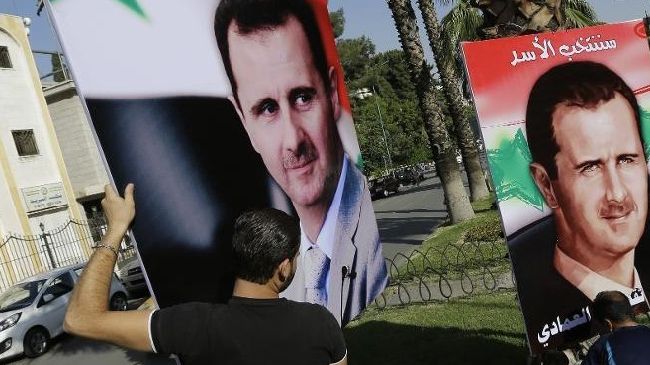Syrian students preparing for presidential vote

 Syrian university students have been preparing themselves for a massive participation in the Arab country’s upcoming presidential election, Press TV reports.
Syrian university students have been preparing themselves for a massive participation in the Arab country’s upcoming presidential election, Press TV reports.
Students at the University of Damascus, who are currently sitting their final exams, have high inspirations to rebuild their country following a prolonged foreign-backed militancy.
“This is the first time that I’m eligible to vote. It’s our democratic right,” one of the students told Press TV.
“All Syrian people will send a strong message to the militants when they choose a president for a new term,” another student said.
Syria’s presidential election will start on June 3. The vote will be held in the government-controlled parts of the crisis-hit country.
On May 28, Syrian citizens living abroad went to the polls at the Syrian embassies in a number of countries including Iran, Russia, Yemen, China, Lebanon, Malaysia, Venezuela, Jordan, Sudan, Oman, the Czech Republic, Belarus and India.
President Bashar al-Assad is seeking a third term in office. He will face Maher Abdel Hafiz Hajjar, a lawmaker from Aleppo, as well as Hassan Abdallah al-Nuri, a legislator from Damascus in the forthcoming presidential race.
Damascus has insisted that it would hold the vote despite the foreign-backed militancy that has reportedly killed over 160,000 people since it erupted in the country in March 2011.
The Syrian government has also dismissed Western and opposition accusations regarding the presidential election, saying that it is planning to hold a free and transparent vote.







